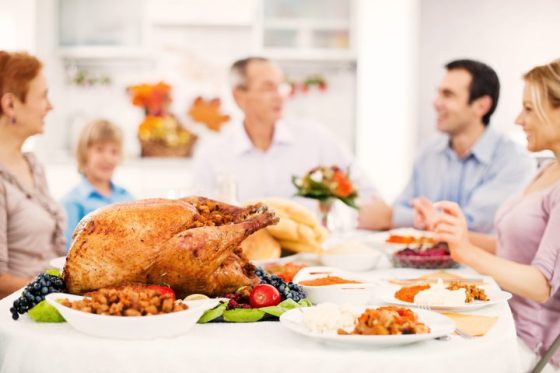
(This post was originally published in the Holland Sentinel, on September 19, 2018)
There once was a newly married woman who decided to carry on the longstanding family tradition of baking a ham for Easter. She picked over the hams in the store in order to select the most perfectly plump one. Before spicing it up with brown sugar, cinnamon and cloves, she cut the ends off the ham and placed it in the pan.
Puzzled, her husband asked her, “Honey, why are you cutting the perfectly edible ends off the ham?”
“Oh,” she said, “because that’s the best and most proper way to prepare a ham. My mom always does it that way.”
“But I wonder why she does it that way?” He asked. His wife was uncertain. Now she was beginning to wonder, too. And so she called her mother.
After exchanging a few pleasantries over the phone, she got around to asking her mother about the ham. “Mom,” she asked, “why do we always cut the perfectly edible ends off the ham before baking it?”
“Oh,” she said, “because that’s the best and most proper way to prepare a ham. My mom always did it that way.”
“But I wonder why we do it that way,” she wondered. Unsatisfied, she decided to dig a little deeper and call her grandma.
After exchanging a few pleasantries over the phone, she got around to asking her grandma about the ham. “Grandma,” she asked, “why do we always cut the perfectly edible ends off our ham before baking it?”
Grandma was puzzled. “Cut the ends off the ham?! You should never cut off the perfectly edible ends of your ham, unless, of course, your pot is too small to fit the whole ham in it, as mine is.”
It’s healthy for the things we assume to be regularly prodded, challenged, investigated, tested and questioned. Dialoguing with people who hold different views is a great way to help us clarify our own way of doing and seeing things. It can help us realize what we may have wrongly assumed based on our own limited view of things. Similarly, it can affirm some of the things we have rightly believed to be true.
When we hunker down, cloistered in small circles of people who see the world just as we do, the human tendency is to form assumptions about our way of doing things. In particular, we become quick to assume our way is the best and most proper way. At the same time, we often lean into making false assumptions about realities we are far removed from and in truth, don’t understand. Forming such assumptions based on limited knowledge can lead to a pattern of being quick to dismiss the voices that challenge us. Rather, we should pay attention to those voices and allow them to penetrate us with the thrust of their questions, disagreements and criticisms. We should journey with those questions as they peel back the layers of why we understand the world the way we do. In doing so we might avoid tossing out valuable insights and instruction.
It often takes someone coming from outside our circles to poke the sleeping giant of our collective assumptions and to lead us to ask important questions about why we see and understand the world as we do. Our tendency is often to resort to defensiveness and dismissiveness in the midst of being questioned. Our ego gets in the way. Inviting examination definitely requires a measure of humility.
But if we are indeed after the truth of the matter and how that truth and a more expansive knowledge of reality can lead to more expansive human flourishing, we should humbly embrace the important practice of allowing our assumptions to be tested.
We’re in the midst of another election cycle, and I urge you to test your long-held political assumptions. When we shake things up and dig deeper into those assumptions, in community with those who bring a variety of perspectives, the truths usually rises to the surface. Rather than jump to dismiss the ideas that fall under partisan labels outside your own simply because they fall under partisan labels not your own, humbly lend your ear to them. Dialogue with them. Allow yourself to be examined, prodded, questioned. You have nothing to lose, after all, in doing so. And it may even be that you, and the world, have an abundant measure of goodness to gain.

